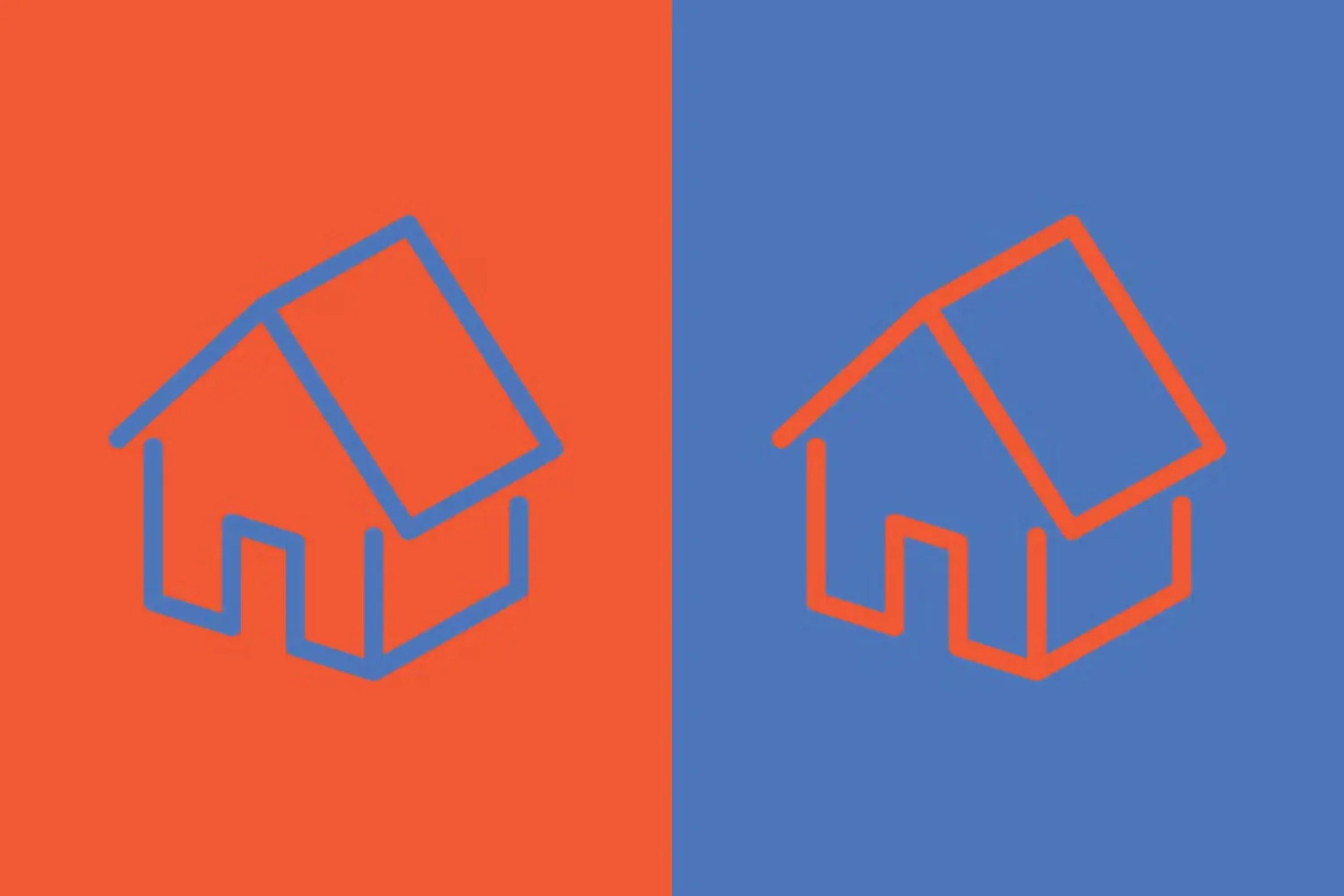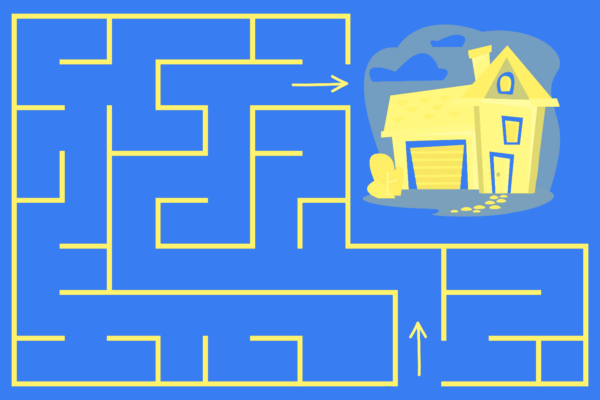
Guide to Homebuying: ARM vs Fixed Rate Mortgages

If you’re in the market for a new home, you’ll likely come across two types of mortgages in your search for the best home loan: fixed rate and adjustable rate. Much about these two loans is similar. They’re easy to find, offered in 15- to 30-year terms, and have minimum requirements that borrowers must meet to get approved. However, they have one notable difference that can make a big difference for homebuyers: how the interest rates are determined. Each of these loans has a time and place that they are best for. In this article, we’ll break down the basics of how each of these loans work and what it means for homebuyers.
ARM vs Fixed Rate Mortgages: What’s the Difference?
Choosing the right loan can help you save money over the course of your mortgage term.
What is an ARM?
An adjustable-rate mortgage, or ARM as it is commonly referred as, is a type of loan in which the interest rate fluctuates based on market conditions.
The advantage of an ARM is that it typically starts off with a lower interest rate than a fixed-rate mortgage, which can save you money in the short term. However, the downside is that your interest rate could go up over time, which could end up costing you more money in the long run.
There are different types of ARMs, including the interest-only and payment-option ARM, but the most popular type is the hybrid ARM. With this loan, you’ll have both a fixed-rate period and adjustable-rate period. After the borrower pays a fixed rate for a specified period, the rate will be subject to periodic adjustments.
From Mortgages to Home Equity Loans
Our local, award-winning lending team is ready to help you begin today.
What is a fixed rate mortgage?
A fixed rate mortgage is a home loan with an interest rate that stays the same for the entire loan term.
The way these loans operate is pretty straightforward.
With a fixed rate mortgage, your monthly payment will stay the same (excluding taxes and insurance) regardless of how interest rates fluctuate. Your loan principal and interest will be spread out in equal payments over the course of your loan term, a process known as amortization. Over time, borrowers pay less towards their interest costs and more towards their principal balance.
Which loan is right for me?
Both loans have their advantages and drawbacks, which is why it’s important to consider your unique situation when choosing your home mortgage.
Who an ARM Is Best For
Following the 2008 housing market collapse, ARMs got a bad rap. Indeed, subprime adjustable-rate mortgages were among the major factors that contributed to the recession and economic turmoil, but times have changed.
Today, the financial sector operates with far more caution than they did in 2008. Additionally, laws and restrictions were put into place to make ARMs more transparent and safer for borrowers than they were back then.
Wondering if an ARM is best for you? Here are a few scenarios where this type of loan makes sense:
- Homebuyers who are buying when interest rates are high: ARMs can be a good option if interest rates are high because you’ll likely start with a lower interest rate than you could get with a fixed rate loan. If interest rates go down after your introductory fixed-rate period, you’ll benefit from the lower payments. The downside to this is that if interest rates go up, your payments will increase.
- Homebuyers who don’t plan to live in their home for long: If you only plan on living in your house for a couple of years, you’ll have the opportunity to sell before the interest rate adjusts.
- Homebuyers who want to put more towards their mortgage in the beginning: With a lower initial rate, ARMs can be a good option for homeowners who have extra money to put towards their principal each month.
- Homebuyers who plan on making more money in the future: Perhaps you’re just getting started in your career and your monthly cash flow is a little tight. You plan on making significantly more money in the coming years, but need to keep your expenses low for the time being. A low-interest ARM can give you the flexibility you need now, and, if monthly payments do increase in the future, your income growth is on track to match it.
Still, ARMs aren’t for every homebuyer. In certain situations, you may be better off with a fixed-rate mortgage.
Who a Fixed Rate Mortgage Is Best For
Fixed rate mortgages may make more sense for:
- Homebuyers planning to stay in the house for more than a few years: ARMs are usually cheaper— but only for the first few years. With a fixed rate mortgage, the interest rate is locked in for the life of the loan, so monthly payments will never go up, even if market interest rates do.
- Homebuyers buying while interest rates are low: If interest rates are currently low but are expected to rise in the future, it makes sense to lock in a low rate now.
- Homebuyers who want predictability: For borrowers who prefer not to worry about changing interest rates or monthly payments, a fixed rate mortgage is the best option. The payment will be the same every month for the life of the loan, so there won’t be any surprises.
- Homebuyers who don’t expect to make more money in the future: Maybe you expect to make less money in the coming years. Perhaps your family is growing and your spouse is planning on staying home with the kids. Maybe you’ve finally decided to make your side hustle your full-time gig. Whatever the reason, having a consistent mortgage payment can take that worry out of the equation.
Regardless of which mortgage you choose, it’s important to shop around to find the right lender and the best rates.
Finding the Best Mortgage Lender
Home ownership is a major milestone, and one that comes with a lot of important financial considerations. Aside from the type of loan you apply for, one of the biggest decisions you’ll have to make is choosing the best lender for your situation.
Here are a few tips to help you find the best lender and mortgage rate.
First, take some time to shop around and compare offers from multiple lenders. This will help you get an idea of the interest rates and terms being offered, as well as any fees or other charges. It’s important to compare apples to apples here, so be sure to look at the total cost of the loan, not just the interest rate.
Next, consider who has the best local connections. Big box banks may serve people nationwide, but it’s important to consider the benefit of working with local lenders who know the communities they serve inside and out.
Finally, don’t be afraid to negotiate. Interest rates are often negotiable, especially if you have good credit. So if you find a lender who’s willing to work with you, don’t be afraid to ask for a better rate.
Learn More About Your Mortgage Options
On the fence about which loan to apply for? Ask your local mortgage experts at Amplify Credit Union! They can walk you through the different types of loans available so that you can weigh the pros and cons and make an informed decision.
Ready to get prequalified?
Apply today and start your journey toward your new home.




